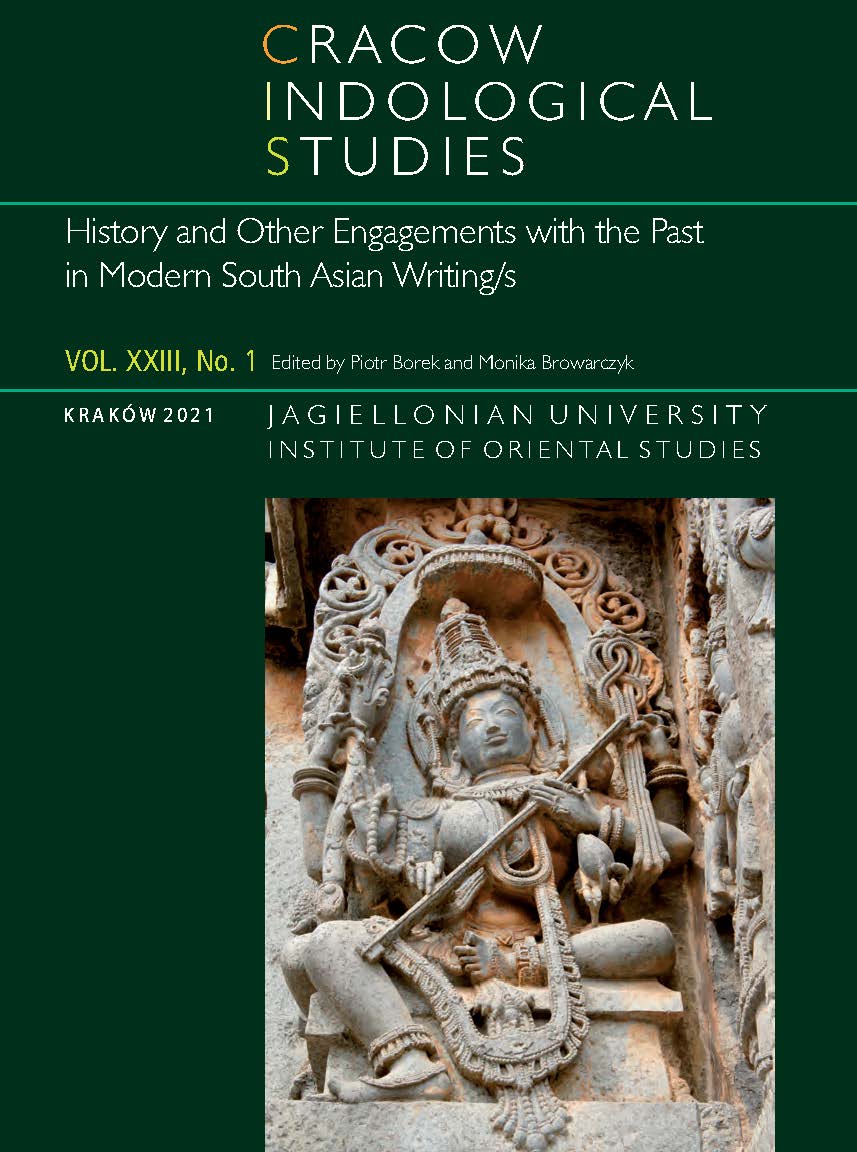The Living Tree: Kr̥ṣṇā Sobtī’s Pre-Partition Punjab and the “Other History”
The Living Tree: Kr̥ṣṇā Sobtī’s Pre-Partition Punjab and the “Other History”
Author(s): Rosine-Alice VuilleSubject(s): History, Language and Literature Studies, Literary Texts, Anthology, Studies of Literature, Theory of Literature
Published by: KSIĘGARNIA AKADEMICKA Sp. z o.o.
Keywords: history writing;mnemohistory;Kr̥ṣṇā Sobtī;Hindi literature;Partition;identity building;Zindagīnāmā;
Summary/Abstract: Historical fiction covers a wide range of texts and presents a large variety of views on the subject of history. It is often seen as a way of narrating history from a perspective ignored by academic historiography, thus offering an alternative narrative of the past. This other way of writing history, namely by way of literary texts, is not always conscious or openly acknowledged. In her essays on literature, the Hindi writer Kr̥ṣṇā Sobtī (1925–2019) clearly formulates her views on the role of the writer when she commits herself to represent the past, differentiating her role from that of a historian per se. Personally, as a writer, she is primarily interested in the perception of time of the people of a region and their understanding of their own past transmitted through tales, songs and other media; this constitutes what Sobtī calls the “other history”, a notion close to Jan Assmann’s “mnemohistory”. Through the example of Sobtī’s magnum opus, Zindagīnāmā, this paper explores what this specific way of narrating history reveals about the rural society of the pre-Partition Punjab.
Journal: Cracow Indological Studies
- Issue Year: 23/2021
- Issue No: 1
- Page Range: 137-155
- Page Count: 19
- Language: English

